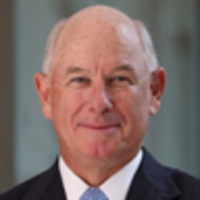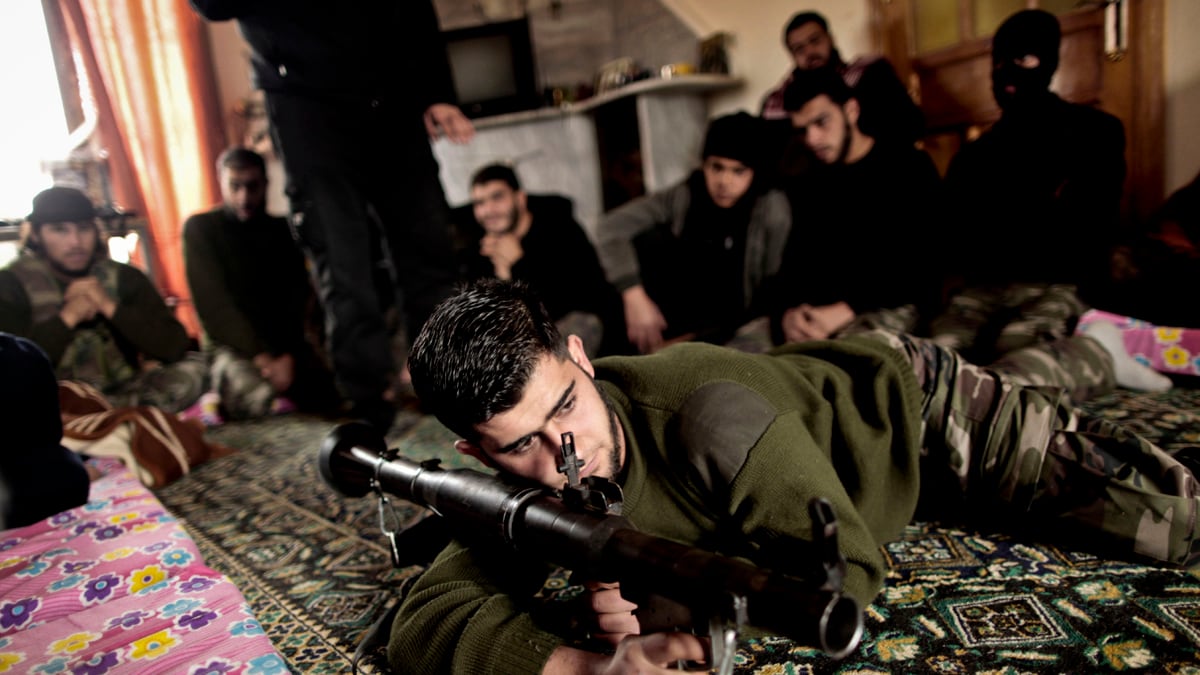The other day, Russian Deputy Foreign Minister Mikhail Bagdanov committed a moment of truth when he acknowledged that Bashar al-Assad might not survive Syria’s escalating conflict. The Kremlin quickly backtracked, but the comments reflect an undeniable reality that the opposition is gaining momentum while the Assad regime continues to lose ground, literally.

Actions are also telling. Russia has positioned ships in the Mediterranean for a possible evacuation of its citizens as opposition forces continue their advance towards Damascus. There is no indication Russia is ready to jump ship and help push Assad out of power and out of the country, but below decks, they see the regime is taking on water and beginning to sink.
The Syrians have their own soundings. Vice President Farooq al-Sharaa suggested that neither side can defeat the other militarily, a view that is probably not shared within the Assad family circle. The regime upped the ante late last week when it fired missiles at rebels in northern Syria that the United States subsequently confirmed were Scuds. The missiles, while notoriously inaccurate, signaled that Assad is prepared to use everything in his still formidable arsenal to defend his rule. The Obama administration recently repeated a public warning against the use of chemical weapons after seeing worrisome activity involving Syria’s chemical stocks earlier in the month.
The Scud launches occurred the same day the United States formerly recognized the umbrella Syrian Opposition Council as the legitimate representative of the Syrian people, a symbolic but nonetheless important political step.
“Transition is coming one way or another,” Deputy Secretary of State William Burns said in Marrakech, Morocco, at the end of a gathering of the Friends of Syria. So far, some 114 countries (not including Russia) and 18 international organizations have recognized the opposition.
United Nations and Arab League envoy Lakhdar Brahimi continues his efforts in the region to build support for an orderly transition from Assad to an interim government. The international community is ramping up assistance to the opposition, which now includes a broader cross-section of players, including political figures outside Syria, fighters inside Syria and also former regime members who have defected. Transition planning is accelerating, including help on how to organize local committees that would be responsible for policing, schools, and basic services after Assad’s fall, including trash collection.
The end may be getting closer, but the situation is still unpredictable and dangerous. Having chosen a middle road 18 months ago—supporting the removal of Assad but choosing not to intervene directly—Obama’s policy seems to be working (albeit in slow motion), but there are few apparent ways of speeding things up.
Al-Sharaa, the Syrian vice president, again advanced the idea of a “historic settlement” and the formation of a government of national unity. That idea might have worked 18 months ago, but is history now. There is little chance the opposition will negotiate with the regime until Assad is gone.
Fred Hof, until September the State Department special representative for Syria policy and now a senior fellow at the Atlantic Council, believes the United States should now provide weapons to those opposition elements it is able to properly vet in order have a greater ability to influence the end of the conflict and transition. As it gained confidence in the viability of the rebel movement in Libya, the United States provided American-made weapons through its Gulf allies. That is an option in Syria, but one that carries considerable risk.
The composition of the opposition is an ongoing concern. The United States recently designated Jebhat al Nusra, an effective fighting force but a front for al Qaeda in Iraq, as a foreign terrorist organization, a step that was openly criticized within the Syrian Military Council. Washington is right to be focused on the day after Assad falls and wants to mitigate such virulent influences from shaping Syria’s future. Obviously, the opposition focus is on the here and now, getting rid of Assad.
Behind Hof’s idea is the need to connect what is happening on the ground militarily within a broader political framework that enables someone to be able to govern Syria after Assad. American-made weapons could be used as leverage to accomplish multiple objectives: weed out AQI influence within the Free Syrian Army; make it more effective; and strengthen the links between the political and military elements of the opposition. This potential triple play is no sure thing. Weapons can get into the wrong hands and complicate regional security when the conflict ends. Libya remains a case in point.
Whether the United States provides weapons or not, there is a compelling need to increase the legitimacy of the opposition in the eyes of key communities inside Syria that are still hedging their bets. The international community has to do more, working through regional governments, nongovernmental organizations, and the opposition, to address the compelling needs of the here and now even as it prepares for the day after.
According to the latest information from the United Nations, more than a half million refugees have crossed into neighboring countries including Turkey and Jordan to escape the violence. As much as a quarter of the population remaining inside Syria needs help, including food, cooking oil, clothing, and heat as winter approaches. The situation is particularly dire in cities like Aleppo, where fighting has been intense in recent months. The U.N. has just issued a new appeal for more than $1.5 billion to meet immediate humanitarian requirements.
The military battle may be approaching Damascus, but the political tipping point will occur amidst the ruins left behind and within the population that has compelling needs now yet still fears the day after. The opposition has yet to sufficiently demonstrate it is united and inclusive and that will protect all elements of Syrian society from retribution.
This is where the struggle for Syria will be won or lost, and where the opposition confronts its greatest challenge.





